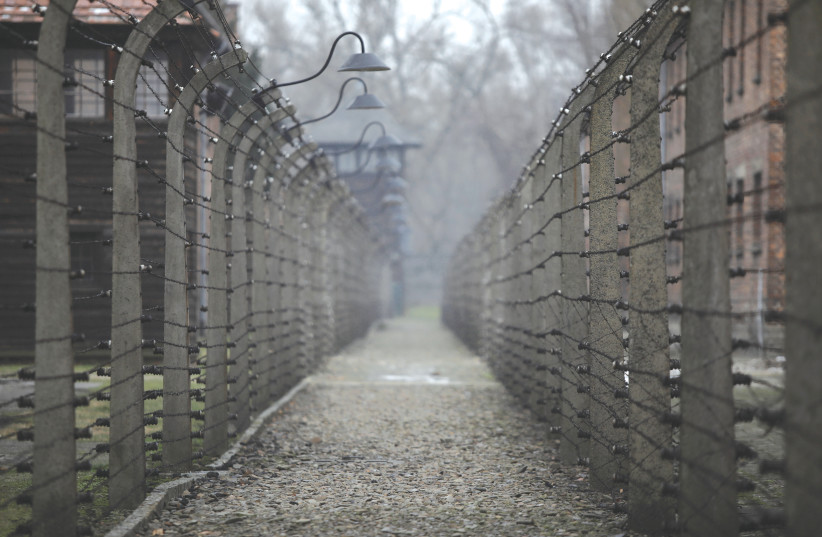Judy Weissenberg Cohen, a Holocaust survivor, told her story of reciting the Kol Nidre passage during Yom Kippur in 1944. Cohen told this story to students on the 1997 March of the Living event.
Kol Nidre is a prayer recited in synagogues across the globe that marks the opening of the Jewish day of atonement, Yom Kippur.
When Weissenberg Cohen was 16, she recalled two older women in the barrack asking Kapos (high-ranking prisoners) for permission to recite the Kol Nidre on Yom Kippur Eve, which they allowed - but only for ten minutes.
In a barrack with 800 women, they received one candle and one siddur, Cohen said. The group was comprised of religious, atheist and agnostic Jewish women. Meanwhile, the two Kapos took watch to check for any SS guard that could arrive.
'God should be asking for forgiveness from us'

Born in Hungary as the youngest of seven, Judy and her family were deported to Auschwitz-Birkenau in June 1944. Judy's parents, along with four of her brothers and most of her extended family, perished in the Holocaust.
In regard to her own situation, Cohen said that "incredibly, all of this happened in a place where we felt it was appropriate that instead of we asking forgiveness from God, God should be asking for forgiveness from us."
Cohen noted that the woman who recited the prayer in the barrack did so slowly so that the rest of the women could repeat the words.
Instead of repeating, however, they cried. "Our prayer was the sound of this incredible cry of 800 women," Cohen said. "It seemed to give us solace"
"Our prayer was the sound of this incredible cry of 800 women"
Judy Weissenberg Cohen, Holocaust survivor
Kol Nidre is an opportunity to remember
The Kol Nidre was a reminder of their "former, normal lives," she said, even if deep down they felt God did not hear their prayers. "The opportunity to cry and remember together helped us feel better."
In 1948, after spending two years at Bergen-Belsen and surviving a death march, Judy moved to Canada, where she married, had children and became an activist for Holocaust education and anti-racism.
"Even today, many decades later, every time I go to Kol Nidre services, I can't shake it," Judy concluded.
"That is the Kol Nidre I always remember."
